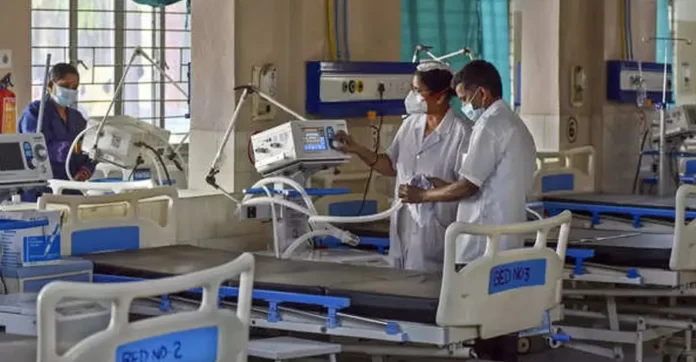
Dr. RV Asokan, President of the Indian Medical Association (IMA), stated that there’s been a stagnation in health investment and emphasized the need to fortify government sector hospitals and their workforce.. Speaking to ANI ahead of the interim budget, Asokan said that investment in the health space has stagnated even as disease burdens have risen.
“Our health investment has stagnated at 1.1 per cent of the GDP for many years. This underfunding is a reason for poor infrastructure and lack of human resources. So we feel without including the budget of drinking water sanitation, which we call health determinants, the core health budget should be at least 2.5 per cent…,” he told ANI over an online video interview. “We would want that the public sector (hospitals) be strengthened and human resources increase,” he said.
Further, noting that the flagship Ayushman Bharat scheme was a very important initiative of the central government, Asokan, however, feels it needs restructuring so that the private hospitals can also benefit. “Two-third of the funding for Ayushman Bharat goes to government hospitals. I think that’s not a great idea because the people are not feeling the relief. Because already it is free. So, it is another way of funding the government hospitals, rather through insurance companies, where they take a share of service provision for 10 to 15 per cent, which is a poor way of funding our government hospitals,” Asokan said.
“We feel the Ayushman Bharat should be restructured for strategic purchases from the private sector and the government has its own channels to fund public sector hospitals through direct sources,” President of the Indian Medical Association (IMA) said. Speaking about the ad hoc appointments of doctors, he said such appointments lack sense of belongingness.
“The very concern in government sector is there has been ad-hoc appointment of doctors across the country for eight to nine months, so they don’t have a sense of belonging. It has to be through regular Public Service Commission’s on a permanent basis with all those accompanying benefits then only the government sector could be run properly,” he asserted. He was also questioned regarding the accessibility of medical education in private institutions, to which he responded that the National Medical Commission advocated for approximately 50 percent of the seats to be left at the discretion of private medical colleges.
“We fought against the introduction of the national medical commission on one of these very important factors, because there was an inbuilt mechanism in every state where even the fees of the private medical college was fixed by a committee appointed by the government. The national medical commission had said that around 50 per cent of the seats will be left free for the private medical colleges to determine,” he explained. The Budget session of Parliament, the last session before the general elections expected in April-May, will begin on January 31 and is likely to continue till February 9.





